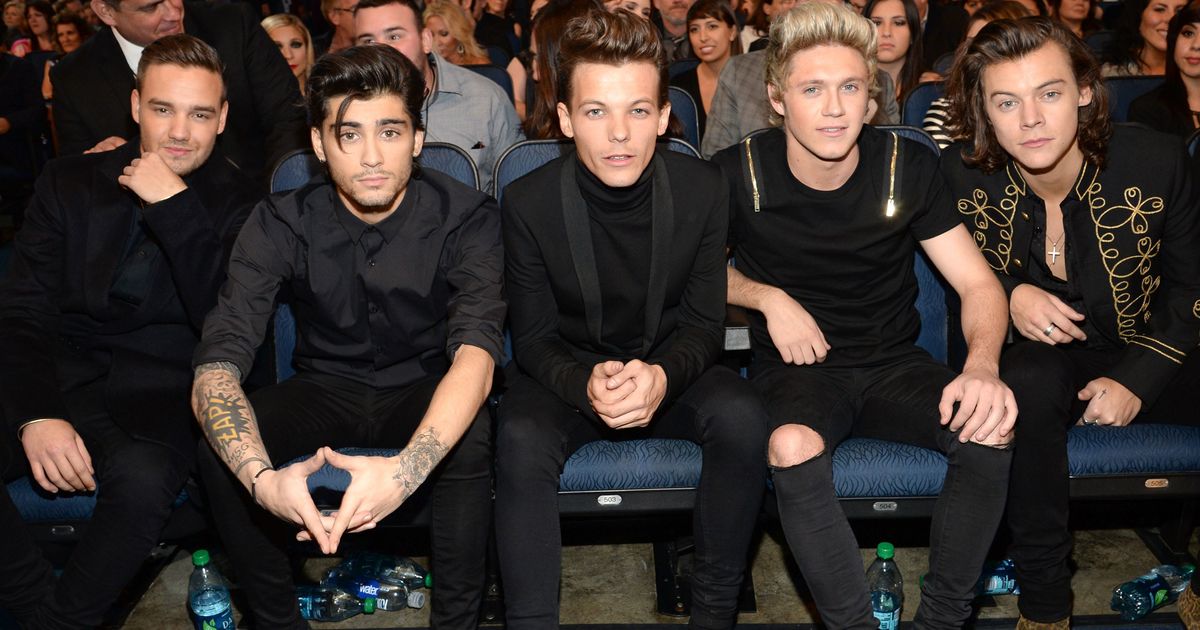
When One Direction first took The X Factor stage in 2010 as a manifestation of Simon Cowell’s deepest sexual fantasy; a legacy of fanfare was re-awoken. A long forgotten legacy that hadn’t seen the light of day since JT went solo. A new legacy that had the internet, camera phones and saucy Wattpad fanfics, but shared the same fervent and timeless love for the fabled boy band.
Now you may dismiss boy bands and their fanbase as silly teenage girls, but the great Harry Styles said it best when he said, “Who’s to say that young girls who like pop music – short for popular, right? – have worse musical taste than a 30-year-old hipster guy.” Society has a special way of degrading things women are enthusiastic about, and boy bands are a breathing, singing, dancing incarnation of that. In fact, in the 80s and 90s, boy bands helped to bust the stigma of ‘teenage girl music’ and bring a resurgence of male listeners with their chart-topping world domination.
So let’s go back to the beginning of time. When The Beatles first performed to a crowd of screaming girls.
Just kidding.
Like most things we wrongfully attribute to straight white males, The Beatles were not the first boy band. not even close. While it’s true (according to Wikipedia) that boy bands have peaked roughly four times in modern history beginning in the 60s; long before the moniker ‘boy band’ was adopted, all-male African American doo woop groups like The Ink Spots were considered to be the originals of the genre.
Fast forward through the decades: Boy bands such as The Jackson 5 and The Osmonds had achieved varying degrees of success until the 90s hit. Inspired by the insane success of the New Kids on the Block, managers began forming groups of noodle haired clones and, I quote, “white boys who could rap, sing, and dance” (Maurice Starr, 1984) and pitting them against each other in pseudo-feuds (feudos). They fit each member into a curated archetype, designed to thrill the public (see: the bad boy, the shy guy, the heart throb, the funny one, the cute young one).
During the 90s, boy bands dominated the charts in the UK and US, and that spread across the world, changing the face of music and the male vocal stereotype. You couldn’t exist in a school in the 90s without being asked if you were an N*SYNC follower or a Backstreet Boys boyo (personally, I enjoy Boyz II Men). The choreography and treatments for their music videos alone pioneered a movement and ‘all male bands’ like Maroon 5 and blink-182 that wouldn’t classify themselves as in the same genre began to style themselves in the same way.
And then it all stopped.
Kidding.
I haven’t really researched enough to say it stopped. But somewhere along the line there was a paradigm shift. It became cheesy. Or maybe we just hit the awkward prepubescent age where you can’t possibly like something. The shame.
Justin Timberlake went solo. Started bringing sexy back, last I heard. The Backstreet Boys split. And from the ashes came…
The Jonas Brothers.
I bet you thought I was going to say 1D, but I couldn’t possibly tell the story of the boy band without first paying homage to the year of 2007 and the Disney Channel Renaissance. There was something special about the new age of music bros in the years following, maybe it was because they wrote their own music, played their own instruments and seemed to be an achievable pull.
And somewhere, across the pond, there was a twinkle in Simon Cowell’s eye. He foretold the new McFly, Busted, Westlife or Boyzone and saw something in five doe-eyed lads with, let’s face it, below average X Factor solo auditions.
And the world once again went crazy for some white boys with a dream and a song in their heart. They captured the minds, souls and reproductive organs of hordes. Several fanfictions turned bestselling novels later, One Direction were a household name reinstating the boy band back at the top. But we all know the end of this story. The edgy one leaves. The heart throb starts a successful solo career. The others exist in the middle ground. The nature of the game became cyclical.
K-Pop has changed the whole game. South Korean boy band hopefuls train for years before they debut, and they emerge as polished superstars with the work ethic and talent to back themselves. BTS is literally the biggest, most streamed band in the world right now.
Boy bands rise and fall, but they’ve never really gone out of style. Maybe they are industry plants carefully selected to be unassuming, inoffensive white boys forever asserting dominance in our society while minorities continue to be marginalised? At the end of the day they’re humans with (varying degrees of) real music talent and boys expressing their feelings and breaking free of the bonds of toxic masculinity. And we could always use a little more of that.